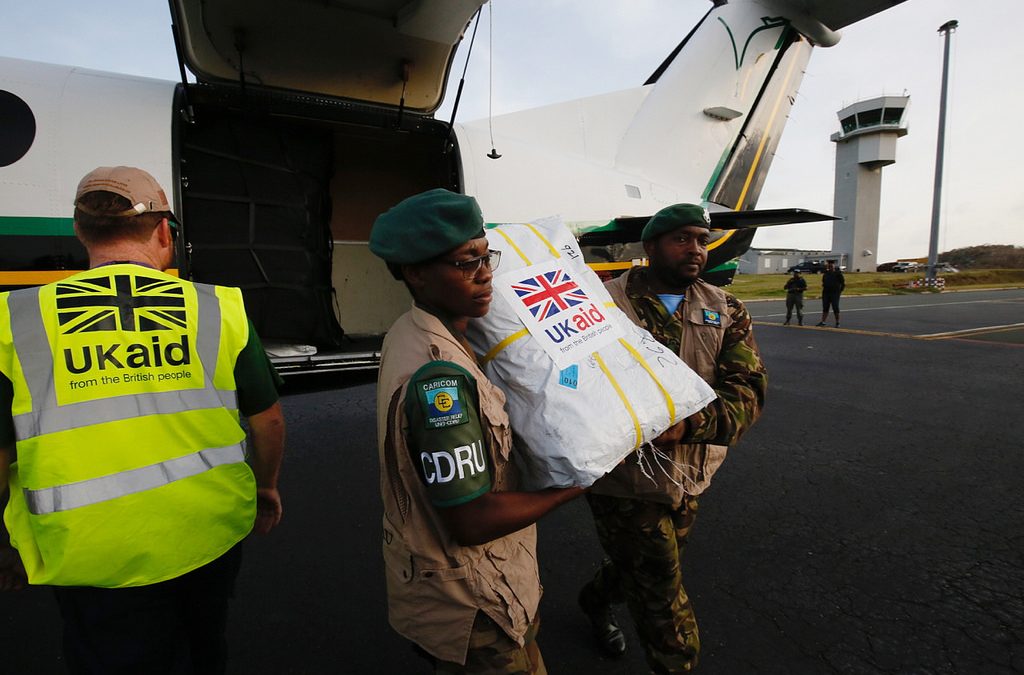Researching the politics of development
Blog

Why We Lie About Aid – In defence of hopeful pragmatism
19 March 2018
Pablo’s provocative new book Why We Lie About Aid, is described by ODI Principal Research Fellow David Booth as ‘one of the most exciting books about development aid in many years’. Here Pablo talks about why he wrote the book and what he wants to achieve with it.
Why We Lie About Aid is a book born out of bafflement, and not a little bit of frustration.
For a long time now I have been baffled about the apparent disconnect between how we – the public in donor countries – talk about aid as if it was solely about charity and poverty. I have seen friends, family and colleagues exposed time and again to donation drives, famine celebrities, and NGOs whose messaging centred on destitution. Or, alternatively, they have been told that aid is a waste of money, a useless or even corrupt tool for fattening experts and dictators. Both narratives stand in marked contrast to my research and consulting work, where I have encountered policymakers, public servants, civil society advocates and development practitioners tirelessly working to set up and improve the institutions that can guarantee more effective states, fairer markets and freer societies. I can only understand development – and, by extension, development assistance – as a political task. And yet that view has been all but absent from public debate, even among those most in favour of international solidarity.
My frustration stems from the lack of response by many of those who could actually change public perception. On the academic side, the study of development politics tends to focus on structural factors, long-term trajectories and country comparisons – reform and change are hard to explain and predict, and have been largely left out of theory. On the practical side, a tricky set of political and bureaucratic dilemmas incentivise a certain obfuscation of reality. Under siege from histrionic critics and opportunistic ideologues, aid organisations have retreated into a convenient fiction of measurability and certainty. The reality of how they work on the ground – of what development actually is – simply does not fit into the templates and standards that they have to meet in order to survive as organisations.

Why We Lie About Aid is based on a decade’s worth of research and experience in developing countries like Sierra Leone, Liberia, Ghana, Uganda and Honduras, but also in donor countries like the United Kingdom, Spain and the United States. It draws upon concepts and theories from economics, political science and sociology, but also countless stories and experiences of development from real practitioners. It tries to summarise cutting-edge agendas for more effective aid formulated by insiders, while hopefully making their motivation and implications accessible to outsiders. It is testament and homage to so many innovative and courageous practitioners and scholars who have spent the better part of the last two decades trying to make foreign aid smarter, better matched to context, and more flexible. They have always faced an uphill struggle, and nevertheless they persist.
Friends and colleagues often call me a contrarian, and this book may very well be proof that they are right. I thought someone should write an accessible book that outlined the politics of aid in all its messiness: the theatrics of donor country debates, the complexity of institutional reform, and the challenges of adopting a more politically smart way of delivering assistance. A book that acknowledges the merits of accountability and value-for-money, of criticism of power relations and coercive agendas. But also a book that recognises the catalytic impact of aid, its positive externalities, the myriad little ways in which it can nudge recalcitrant actors towards positive change.
Why We Lie About Aid offers a pragmatic but hopeful understanding of development, comprising ideas that will resonate with aid sceptics and champions alike, as well as questions that will challenge how we tend to frame donor debates. Instead of sticking to the jarring – if comfortable – poles of the debate, it occupies the messy middle of actual development practice, hoping to draw attention to the stubborn reformers and dogged activists that I have encountered over the years. In that sense, it is indeed a book about contrarians.
Above all, I believe it is worth reminding ourselves of the principles that made the aid system grow to what it is today, principles that I believe to be as valid and morally desirable today as they were almost eight decades ago, when the Atlantic Charter was signed. This may not seem like the best time to argue for humane internationalism, with donor politics beholden to nativists, populists and economic protectionists. But the scale of the challenge does not diminish the importance of such principles going forward. If donors are to remain relevant, and if their development partners are to achieve meaningful, sustainable change, we need to rethink what we expect from aid. And that starts here, at home, by asking better questions and hopefully arriving at more interesting answers.

